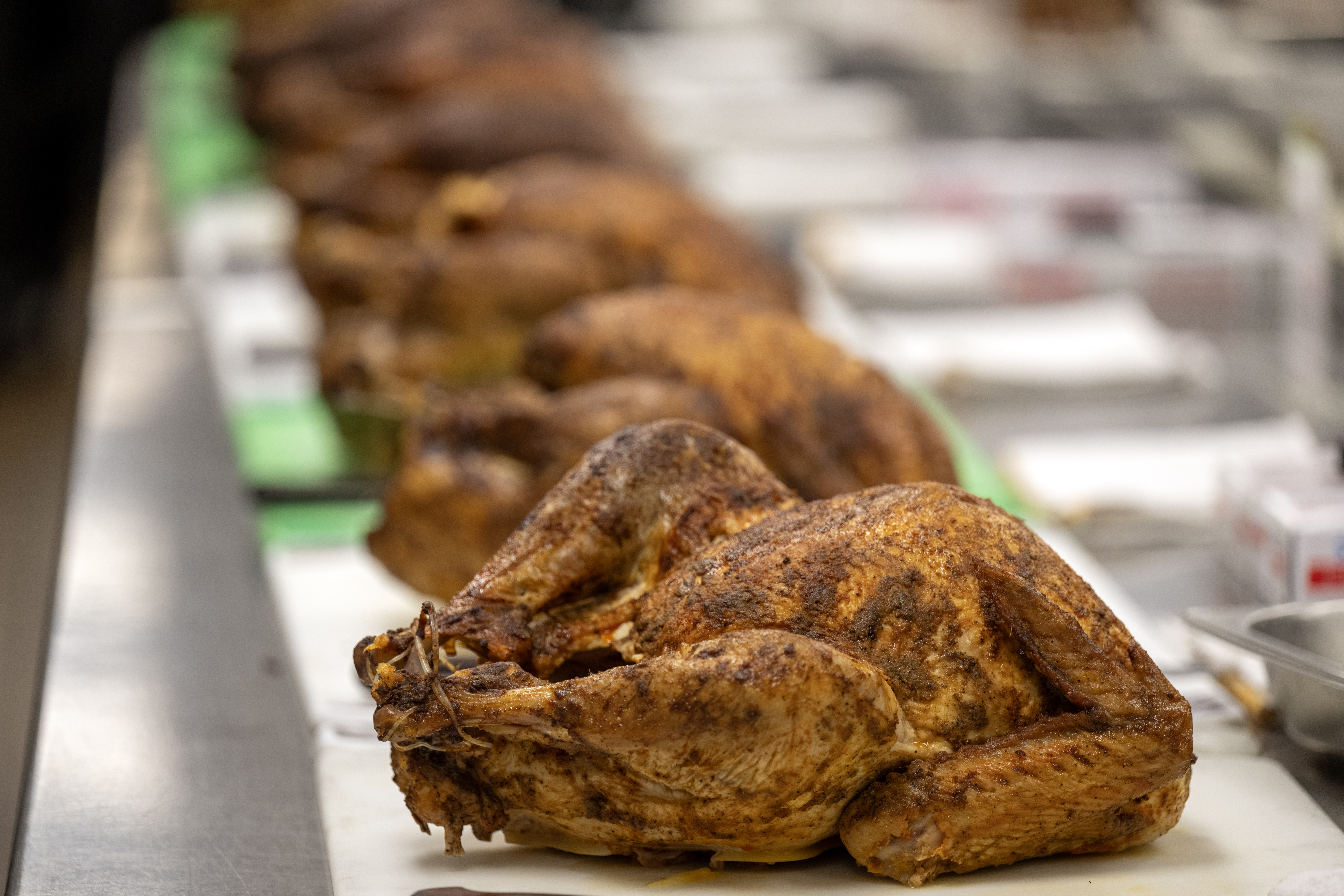Blüm marijuana dispensary certainly doesn't look like a food truck.
There are no chicken wings or tacos at the Reno store, just displays of bagged gum drops, jarred marijuana leaves and oils and balms.
If you use your credit card, though, your statement will show that you just made a purchase at the "Midgrun Eats LLC food truck."
Why? Canna-business experts say it's a backdoor tactic to skirt federal banking regulations and boost business.
"It's not even back door, it's more like an upper window," Jeremy Skaff, of Colorado-based Journey Business Solutions, told the Reno Gazette-Journal. Skaff advises marijuana-related businesses how to handle finances.
The "food truck" label might be the key to the business' rare ability to take credit cards — an anomaly in the traditionally cash-only marijuana industry.
"I'm not a statistician, so I don't know that customers will spend more if they have a credit card," Skaff said. "But a business that takes credit cards, it's more convenient for customers. The more options that you give people to pay, the more business you're going to get. No one carries cash anymore."
U.S. & World
News from around the country and around the globe
Blüm representatives declined to comment. But calls to all six Blüm marijuana dispensaries in Nevada and California confirmed they all take credit cards.
Visits and calls to all other dispensaries in Washoe County found no other dispensaries taking credit cards.
While ATMs and debit cards have become commonplace at dispensaries because they can process under a third-party system, taking credit cards could be risky.
Will Adler, a cannabis advocate and lobbyist at Silver State Government Relations, is certain that other dispensaries have tried the tactic. But he said it appears that Blüm is the only one in the Reno area still doing so.
"People love using credit cards, you get points! It's a competitive edge. The convenience of being the only guy that takes credit cards, that's a big advantage," said Adler.
Business experts say the dispensary, owned by California-based cannabis titan Terra Tech, could face federal inquiry and banking fines.
U.S. attorney's office spokeswoman Trisha Young declined to confirm or deny whether federal authorities were looking into Blüm dispensary.
The top federal prosecutor in Nevada, Nicholas Trutanich, has said marijuana remains illegal under federal law, and his job is to enforce federal law. He also says pot prosecutions are not a top priority in a state where recreational use is legal.
Because marijuana remains illegal at the federal level, regulated and insured banks typically refuse to deal directly with marijuana-related businesses.
And because credit cards are backed by banks, that also precludes most marijuana businesses from taking credit cards.
Candace Carlyon, a banking attorney in Las Vegas, called the inability of marijuana-related businesses to use banks a "terrible situation."
"When you have a business, you need to bank," she said.
Carlyon said marijuana entrepreneurs often resort to disguising their money in one way or another, but misrepresenting the nature of the business to a merchant services vendor could raise questions about money laundering, a felony.
The Money Laundering Control Act says one form of money laundering under is knowing that a transaction has been represented to "conceal or disguise the nature, the location, the source, the ownership, or the control of the proceeds of specified unlawful activity."
Customers, however, are at little risk if they make cannabis dispensary credit card purchases.
Additionally, under the Nevada's Department of Taxation regulations, there are no detailed restrictions preventing dispensaries from accepting credit cards.
Blüm isn't the first dispensary to try a credit card-friendly model.
Skaff said he's seen it before in Colorado, but as a consultant he never recommended it.
Since Colorado legalized recreational marijuana sales in 2014, Skaff's company has been finding banking and payment services solutions for cannabis companies.
"When you're high-risk, you can't find just one good solution and be done. You have to find multiple because those solutions won't last forever," Skaff said.
The Treasury Department recently reported the number of banking institutions working with marijuana-related businesses was on the rise.
A Marijuana Business Daily analysis of Treasury data said the number of financial institutions actively banking marijuana-related businesses in the United States reached 633 at the end of the first quarter of 2019, up from a little more than 400 at the start of 2018. The numbers could be misleading, however, because the data is based on reports of suspicion rather than certainty.
Because credit unions are not federally insured, they're the most likely to welcome weed money, Skaff said, but the wait can be three months or more since the credit unions will only deal with so many marijuana-related businesses at once.
Skaff also helps marijuana-related businesses find ways to handle less cash day-to-day without credit cards by using debit cards, ATMs and gift cards. None require the backing of a bank.



